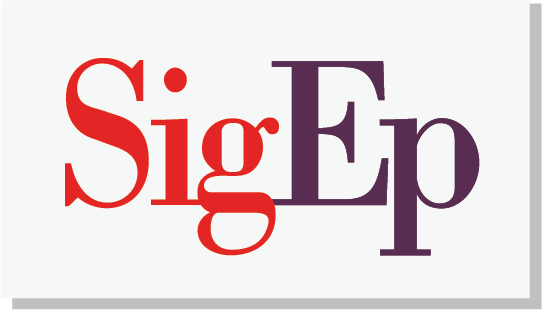A number of inter/national fraternities have recently announced new measures regarding the role of alcohol in their organizational activities. One organization has been particularly outspoken in their efforts to remove alcohol from their residences and activities. In November of 2017 Sigma Phi Epsilon announced new measures to remove alcohol from all chapter facilities. In the announcement Chief Executive Officer Brian Warren said, “For SigEp, there can be no more discussion about maintaining that status quo. Fraternities must change.”
Perspectives had an opportunity to sit down with Brian Warren to learn more about how that change might materialize. Our conversation provided some insight on what has led us to this point, and what we might expect in the future as fraternities continue to grapple with issues related to alcohol abuse and misuse.
Perspectives: Addressing alcohol issues within our organizations is not a new topic, what value do you see in speaking out about this now in the way that you have?
Brian Warren: Yes. SigEp’s substance-free facilities decision has received a lot of attention; but, we didn’t approach this as an opportunity to speak out.
We’ve talked about being a valued partner in higher education for years. Our substance free facilities decision is an important step in an ongoing effort to create a “new normal” for fraternities.
In 1991 we launched our Balanced Man Program. The program is designed to eliminate hazing and replace that destructive behavior with programming that instills purpose and perspective our young men can rely on for the rest of their lives. It reinforces academic excellence, empowers them to lead with integrity, promotes physical health and mental wellness and prepares them for successful lives and careers.
Substance-free facilities will complement the BMP by creating a safer environment designed to engage faculty, alumni, parents, and other volunteers invested in the success of our undergraduate brothers.
P: What was your decision making process? How did you come to your final decision to make a statement?
BW: All of our decisions have been supported by data and anecdotal evidence. Last academic year, 75 SigEp chapters houses were operating with some form of substance-free policy. When we compared the performance of our substance-free facility chapters to those that were not, it was clear that the substance-free chapters had higher academic performance, higher retention rates, fewer student safety incidents, and were receiving more campus awards. At our most recent convention, our undergraduate legislative body wanted to take a bold stand that reaffirms SigEp’s values and priorities. Our undergraduate leaders voted to adopt a fraternity-wide substance-free policy.
P: What are you trying to accomplish?
BW: We are trying to accomplish what we have been for decades — helping men strengthen their character, develop healthy relationships, build leadership and interpersonal skills, and confidently apply their academic knowledge to real-life situations. We believe that this policy is another logical step toward creating a culture that prioritizes personal development and growth.
A culture centered on alcohol does just the opposite — it instills debilitating habits and offers an environment in which young men struggle to have meaningful interactions and develop healthy, life-long relationships.
P: The simple question, yet the difficult question we have all pondered here is that of what will actually work? How can we prevent alcohol abuse in our chapters?
BW: Social psychology tells us that behavior is a product of people and their environment. For fraternities, that means the way we recruit, who we retain, and what environment we place them in will determine chapter behavior.
The behavior depicted in news headlines tells us something needs to change. For SigEp, and I assume other fraternal organizations, almost all insurance claims involve alcohol; 90% of members living in a chapter home are under the age of 21; and the chapter house is the embodiment of chapter culture. Shouldn’t that combination of facts guide us to a very easy decision?
Fraternities today have grown far too comfortable with attempting to solve behavioral issues without confronting the role of their environment. This isn’t working. Many chapters are saying one thing and doing another, oftentimes with disastrous results.
P: Critics of alcohol free housing will say you are just moving the problems elsewhere, how do you respond to that?
BW: Talented and promising young men are already refusing to join fraternities because of the archaic behaviors that repeatedly lead to tragedy. Many of our chapters are filled with men who never thought they would be Greek. So, I refuse to believe that students or chapters are incapable of changing. I believe that our students have a great potential for change if we put them in an environment which sets them up for success.
P: Sigma Phi Epsilon has been reaching out to other organizations to as well, why are you doing this, and what do you hope they will do in response?
BW: We’re trying to form a coalition of groups that are committed to creating a new normal for fraternities. It’s hard for an 18-22 year-old student to consistently do things differently than everyone else around him. They’re worried about their reputation as they push back on “traditions” that are killing people.
They’ve asked me and SigEp’s national directors to reach out to other fraternities and get their commitment to going down this path with us.
Together, I hope we can change things. I hope we can save lives while providing an experience more relevant to our values and the mission of higher education.
As a quarterly magazine, Perspectives provides a forum for research, ideas, and information related to fraternities and sororities that:
- is thought-provoking and innovative,
- shares new information,
- highlights best practices, and
- challenges thought.
Perspectives promotes the exchange of various angles, arguments, contexts, and experiences to stimulate a deeper understanding of fraternity and sorority advising, education, programs, and policies.









Bob Kerr says
A well presented position and reflects my professional research and experience as a Greek Life professional. The New Normal is both a challenge and an opportunity. The challenge is understanding that all fraternities are providing road blocks for high performing students to join. The opportunity is to create a fraternity product that is a magnet for young men of character looking for professional and personal growth. With courage and faith the New Normal will be a fertile ground to sustain the future of fraternities.